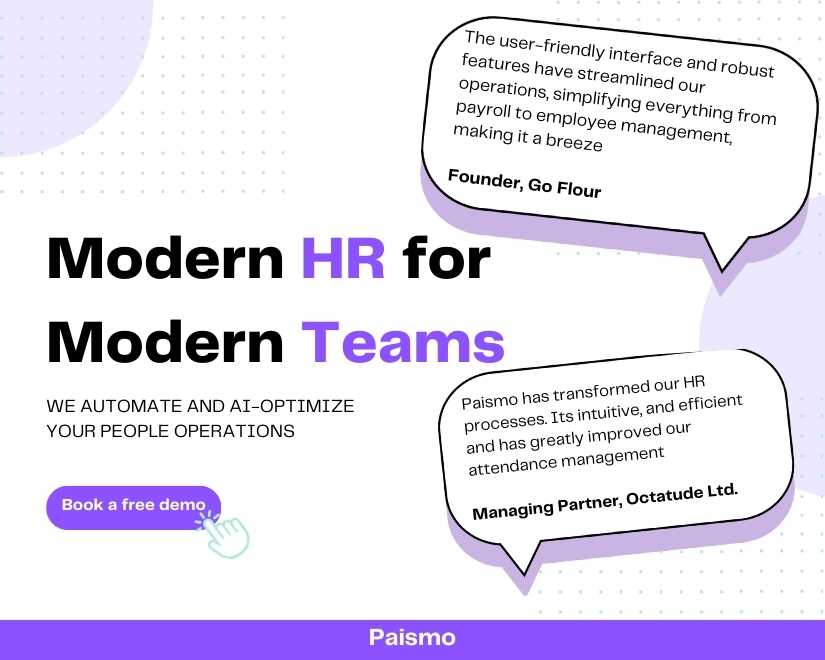Most businesses follow similar formats when creating compensation plans for their employees. While many organizations focus on competitive salaries to attract and retain top talent, other businesses try to incorporate benefits as an added perk for working with the company.
Employee benefits can be an effective way to increase the talent pool a company has to work with while also helping them to build a more positive working environment and culture. However, many modern employees are seeking more distinctive benefit offerings that don’t simply follow the standard format.
Today’s employees have very unique needs and preferences when it comes to the companies they work for and the types of benefits they require to stay motivated. Below, we’ll cover some of the advantages of structuring more employee-centric benefits offerings and strategies you can follow to approach this new format.
Advantages of an Employee-Centric Benefits Package Design
Understanding Real-World Value
When you’re planning benefits packages on paper, it can be easy to assume that what you’re offering employees should be perceived as high value. However, when asking your employees directly about their opinions on the structure of their packages, you might be surprised at the different answers you receive.
Incorporating employee feedback into a benefits package design provides businesses with firsthand insight into the type of coverage or company perks that matter most to those who will ultimately utilize them.
Maximizing Return on Investment
Offering employee benefits doesn’t come without a price tag. Depending on the size of the business and the amount of coverage being offered, companies may make significant investments in their teams. Making sure these investments don’t go to waste is critical.
Getting your teams more involved in helping to choose or modify benefits packages in the long term helps ensure that everyone gets maximum usage out of them. Having regular feedback loops associated with your offerings ensures that every coverage option you offer is worth it to employees, resulting in a higher return on your investment.
Building Trust and Demonstrating Commitment
Taking the time to connect the dots between what your employees need and what the business provides can be a highly effective strategy for creating a more positive working atmosphere. Showing that you really care about the needs of your employees sends a message to them that they’re valued and appreciated.
This can be a powerful way to build more trust between the business and its staff, helping to create a more caring culture where everyone truly appreciates one another and enjoys being a part of the business’s long-term success.
Effective Strategies for Capturing Employee Opinions
One of the best ways to inform your decision-making when structuring benefits offerings is by hearing from your employees directly. Below are a few strategies you can use to do this effectively:
Sending Out Surveys
Sending out pulse surveys is a proven method for gathering valuable insights from a large group of people. Taking this approach can provide a broad overview of how your employees feel about various business topics, including their benefits offerings.
Surveys can also be submitted anonymously, allowing employees who may feel uncomfortable expressing negative opinions about their overall compensation packages to be more open with their comments and concerns. This ensures you’re getting an honest representation of how employees feel, helping you to base your decisions on facts.
Having Structured Group Discussions
While surveys can be an easy and effective way to gather how a larger group of employees feels about their benefits offerings, sometimes the data collected isn’t as detailed as you would want. In these cases, having structured group discussions can help you associate the “why” with each of the comments you’ve collected through your surveys.
Having even informal roundtable discussions related to employee benefits can provide you with a more nuanced perspective into how your employees feel about their coverage choices. This not only provides you with more actionable data to work with, but taking this initiative also shows employees that their opinions are valued and that the company is always listening.
Learning From Exit Interviews and Informal Chats
Most of the time, the best feedback you can receive will be in private settings. This could be during regular one-on-ones with managers or during exit interviews. It’s essential to utilize these meeting formats whenever possible to gain a deeper understanding of how employees truly feel.
A better understanding of the individual’s expectations of the business and their overall satisfaction with aspects such as compensation and benefits offerings can be invaluable when using it to help improve the organization.
Translating Feedback into a Winning Benefits Blueprint
Once you’ve collected all relevant feedback, it’s time to make good use of it when improving how you structure a winning benefits blueprint. Below are a few practical tips for doing this.
Centralize Collected Data and Look for Patterns
After you’ve received information from your employees, start analyzing all the data you’ve collected and look for patterns in comments or concerns expressed by multiple employees. In most cases, there are common denominators in those comments that may point to areas of benefits packages that need to be addressed.
For example, if you’re noticing that a significant number of employees aren’t using one of their “perks” provided, consider removing it and replacing it with something that they would value.
Prioritize Initiatives With the Largest Impact
Once you’ve narrowed down a list of potential changes to your benefits structure worth exploring, the next move you should take is to weigh them by their financial impact and how feasible they are to implement.
A great time to do this is often after your annual planning or budget cycle, when you have the best financial picture. Consider how much value each potential change would bring to your team and evaluate whether it's a sustainable addition for the long haul.
Test the Waters with Controlled Changes
If you're thinking about making a massive change to your benefits package, it’s wise to test it on a smaller scale first. Rolling out a pilot program with smaller adjustments first is a smart way to gauge your team's reaction to the changes.
Taking this approach helps you confirm that the new offerings are being received as positively as you had hoped and allows you to iron out any kinks before committing to a company-wide launch.
Start Building a Better Benefits Program
Paying attention to what your employees say about the company perks or benefits you provide doesn’t just help you create more optimal programs - it also sends a strong signal to employees that their input is genuinely valued. This type of approach naturally helps increase team morale, improving staff retention rates and better positioning your business for growth.
Contribution By:

Frank Mengert
Frank Mengert continues to find success by spotting opportunities where others see nothing. As the founder and CEO of ebm, a leading provider of employee benefits solutions. Frank has built the business by bridging the gap between insurance and technology driven solutions for brokers, consultants, carriers, and employers nationwide.
Become a part of the Paismo community
Paismo is an HR software that can help simplify your HR operations. In today's dynamic economic environment, efficient HR and automated payroll management are no longer a luxury but a necessity. Paismo is a comprehensive solution that transforms traditional HR complexes into streamlined and automated workflows. Paismo and its paired biometric device integration can be used for your business to mark employee attendance and record their timesheets accurately.
Paismo simplifies your tasks with its core HRMS, timesheets, and attendance management, as well as biometric attendance, payroll automation, and leave management system.

Take the first step toward modernizing your HR and payroll processes and explore what Paismo can do for you. Book a demo with our sales team.








